SCIENTIFIC SEMINAR ON "STANDARD ISSUES FOR MODERN RAILWAYS – PRACTICAL NEEDS OF VIETNAM AND INTERNATIONAL EXPERIENCE"
On May 6, 2025, the University of Transport and Communications (UTC) organized a Scientific Seminar on "Standard Issues for Modern Railways – Practical Needs of Vietnam and International Experience" and a Strategic Cooperation Agreement Signing Ceremony with the University's partners.
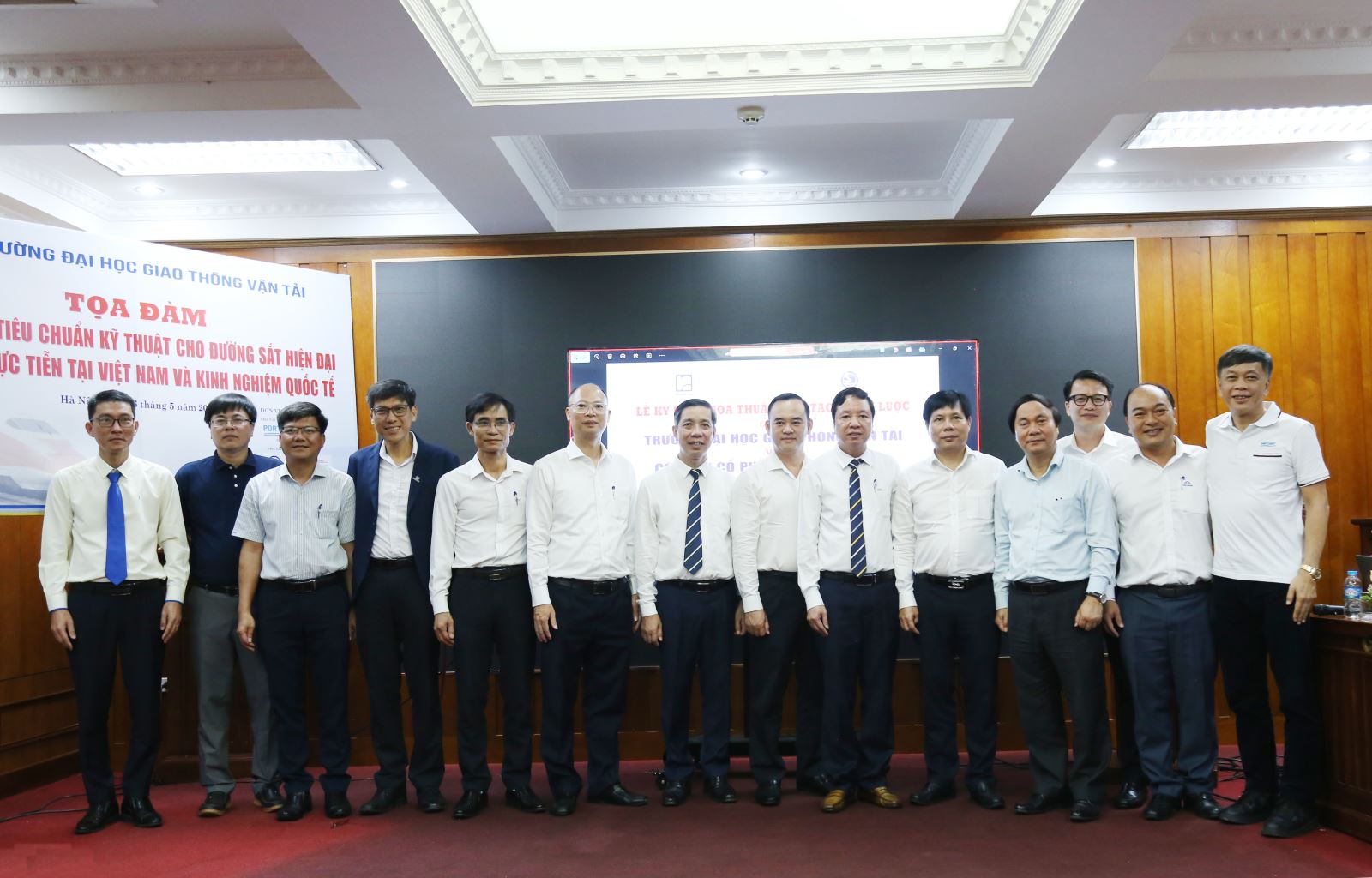
Delegates attending the program took a commemorative photo.
The event was attended by a large number of representatives from government agencies, enterprises, the University’s partners, scientists, and media organizations.

Overview of the seminar
Speaking at the event, Associate Professor Dr. Nguyễn Văn Hùng – Principal of the University – emphasized that this was a highly practical and meaningful event, held at a particularly significant time when Vietnam’s railway sector is facing a historic opportunity for breakthrough development. A series of major policies and strategic decisions have been simultaneously and strongly adopted by the Party, the National Assembly, and the Government.
Rarely in the history of Vietnam’s railway sector have such positive developments been witnessed as they are now. In less than a year, the National Assembly has successively passed many important resolutions, along with a series of decrees, mechanisms, and policies aimed at removing bottlenecks in standards, technology, and resource mobilization – paving the way for the railway sector to take off.
At the second meeting of the Steering Committee for National Key Railway Projects held on April 26, 2025, Prime Minister Pham Minh Chinh delivered a clear call to action:
"Faster, bolder; with greater foresight, deeper thinking, and grander vision."
Once again, the Prime Minister emphasized the completion of the system of technical standards, regulations, and high-quality human resource training – prerequisites for the effective implementation of key railway projects.
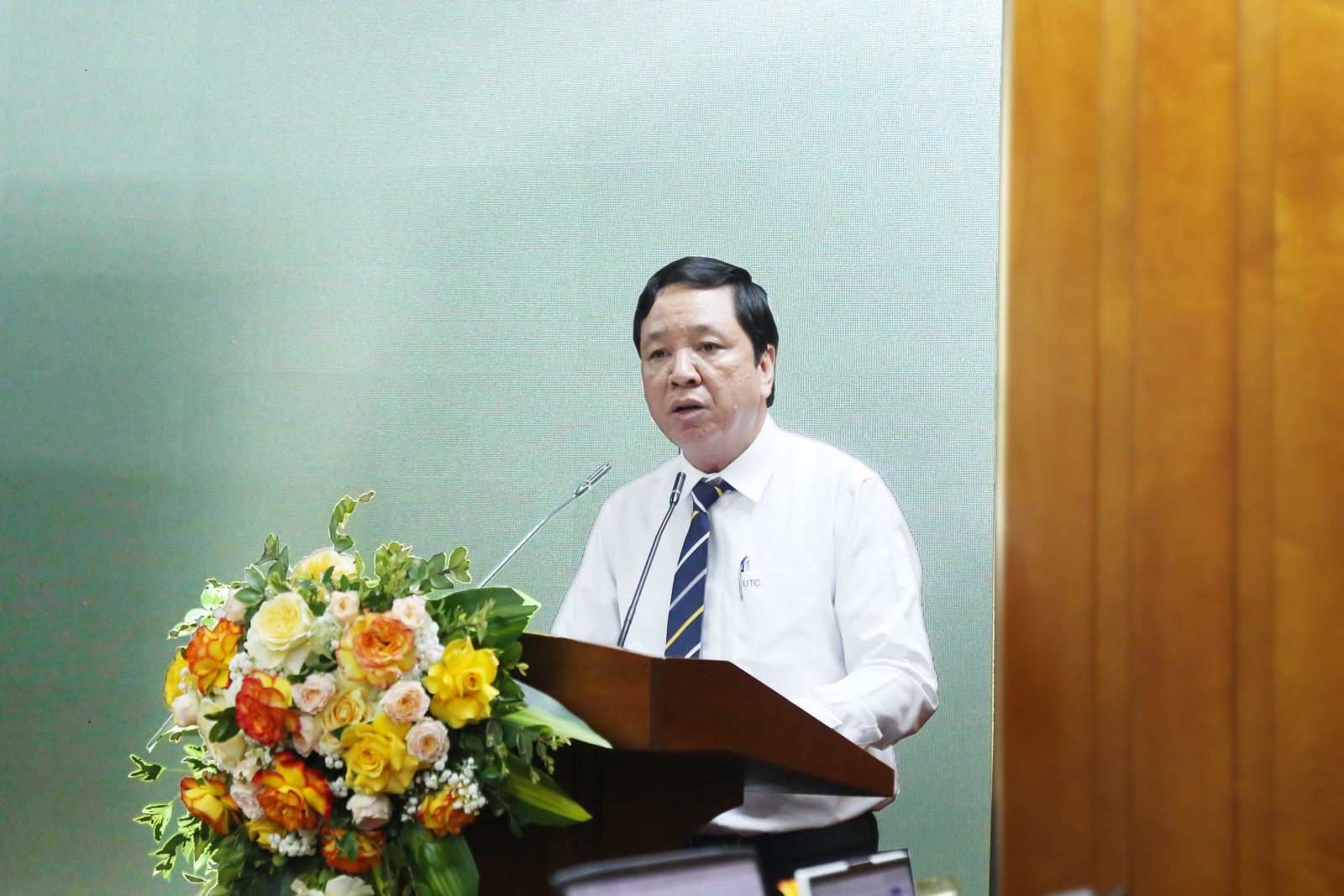
Assoc. Prof. Dr. Nguyen Van Hung – President of the University delivered a speech
The University of Transport and Communications (UTC), as the country's sole key university in the field of transportation, has been proactively adapting and implementing many breakthrough solutions to meet new requirements:
The University has officially announced 5 engineering training programs in modern railway fields, contributing to a profound renovation of training content and methods, geared towards national key projects.
From 2024 to the present, the University has collaborated with experienced international partners from China, Japan, South Korea, and the Federal Republic of Germany to organize a series of seminars and workshops on design standards, material technology, construction and operation solutions, and the exploitation of modern railway systems.
The classic "triple helix" model – involving government, academia, and industry – has been researched and improved by the University into a "quintuple helix" model, which adds: Technology Transfer Entities, comprising high-tech foreign partners who play the role of technology transfer, technical consulting, and technology verification; and Beneficiary Units, including specialized ministries, localities, project management boards, and operating enterprises that need to apply technology in practice and achieve successful real-world application; thereby promoting the implementation of large-scale S&T programs serving the country's infrastructure development strategy.
In particular, the University has collaborated with the Department of Science, Technology, Environment and Materials; and the Railway Project Management Board – Ministry of Construction to receive and translate 88 core standards of electrified railways and 29 standards of China's high-speed railways, initially forming a technical foundation for the domestic engineering community.
On behalf of the University, Assoc. Prof. Dr. Nguyen Van Hung – President of the University expressed his gratitude to the functional units of the Ministry of Construction, Ho Chi Minh City, and Hanoi, especially the Department of Science, Technology, Environment and Construction Materials, the Department of Construction Investment Economics and Management, and the Project Management Boards for their close coordination with the University in organizing the seminar; the main sponsors: PortCoast Company, Dai Dung Group, TEDI South, and Vinafore Company; and the partners attending the cooperation agreement signing ceremony with UTC. The presence, support, and cooperation of units, organizations, and partners are clear evidence of the strength of the linkage between parties, for the common goal of developing a modern railway system in Vietnam.
.jpg)
Assoc. Prof. Dr. Nguyen Van Hung - President of the University presented certificates of appreciation to the units sponsoring the program.
Following the opening ceremony, a strategic cooperation agreement signing ceremony took place between the University of Transport and Communications and its partners, including: the Ho Chi Minh City Urban Railway Management Authority and the Ho Chi Minh City Urban Railway No. 1 Company Limited, Truong Hai Auto Corporation (THACO), and Phan Vu Investment Corporation.
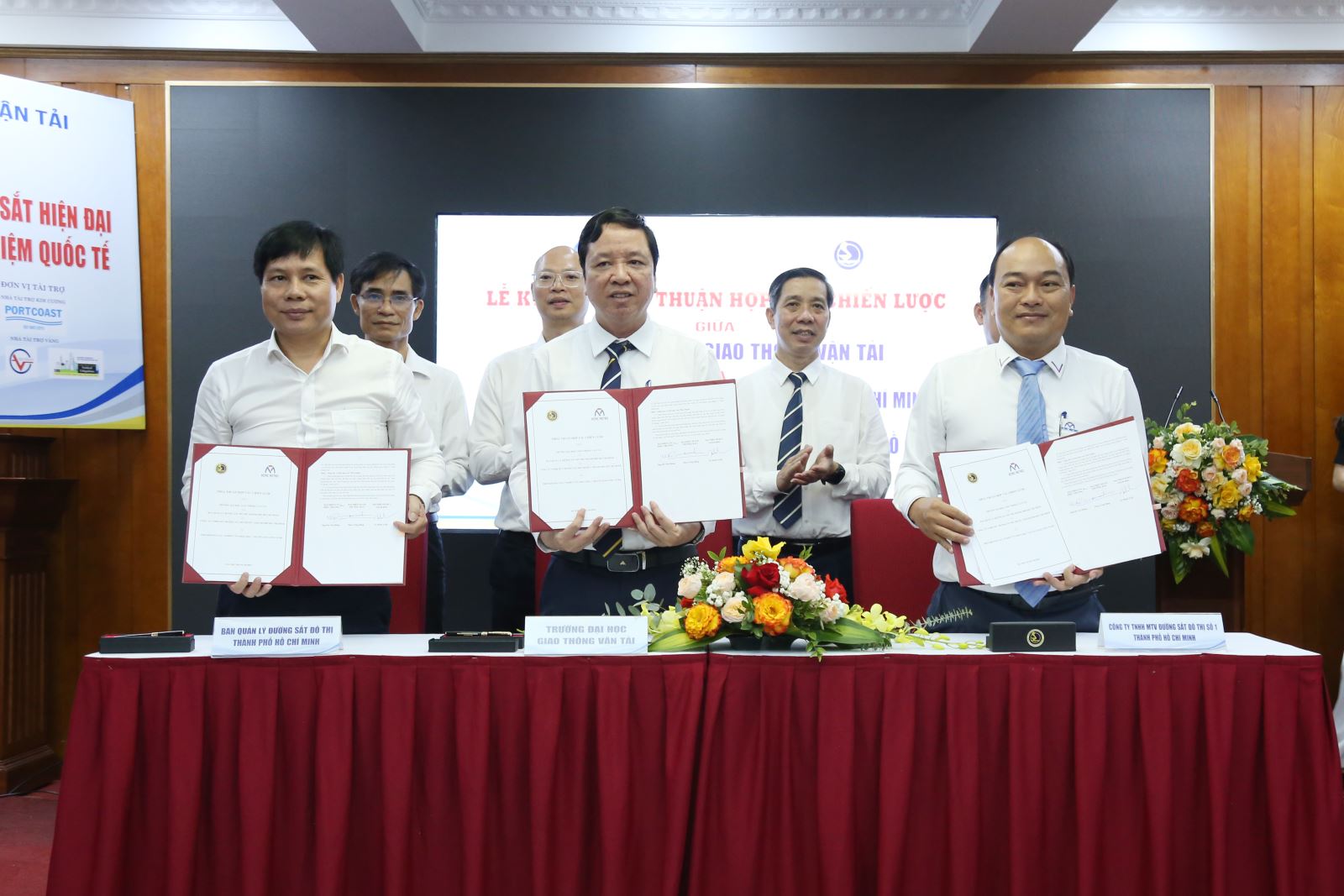
Strategic Cooperation Agreement Signing between University of Transport and Communications and Ho Chi Minh City Urban Railway Management Authority and Ho Chi Minh City Urban Railway No. 1 Company Limited

Strategic Cooperation Agreement Signing between University of Transport and Communications and Truong Hai Auto Corporation (THACO)
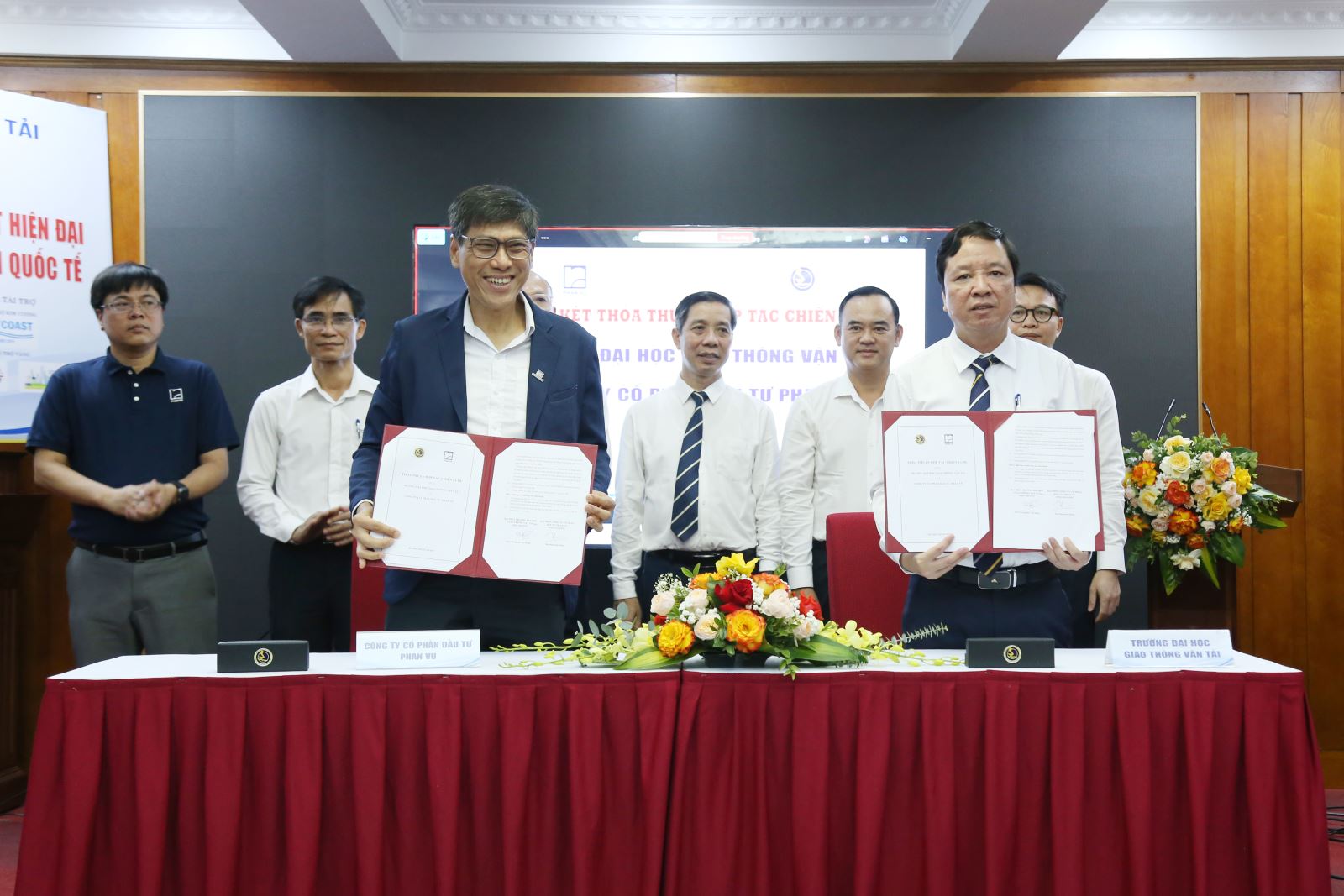
Strategic Cooperation Agreement Signing between University of Transport and Communications and Phan Vu Investment Corporation
According to the newly signed agreement, University of Transport and Communications, along with its partners, will collaborate to master strategic technologies in the design, manufacturing, testing, and standardization of railway vehicle products, especially in the context of Vietnam's strong push for the development of high-speed and urban railways. The goal is to gradually localize the entire value chain – from technical design to production and inspection – contributing to reducing reliance on foreign technology and enhancing the competitiveness of domestic products. By leveraging the strengths of each party, the cooperation aims to build an integrated model between scientific research, in-depth training, and practical production deployment. The university plays a central role in foundational research and the training of high-quality human resources, while the partners serve as focal points for application/production deployment/operation and organization – forming a closed, effective, and in-depth linkage chain, aiming towards building a complete ecosystem for Vietnam's railway industry. The synchronous development of these factors will be a crucial foundation for Vietnam to build modern railway lines for the country and in Ho Chi Minh City in particular, with independence, autonomy, and sustainable development capabilities.
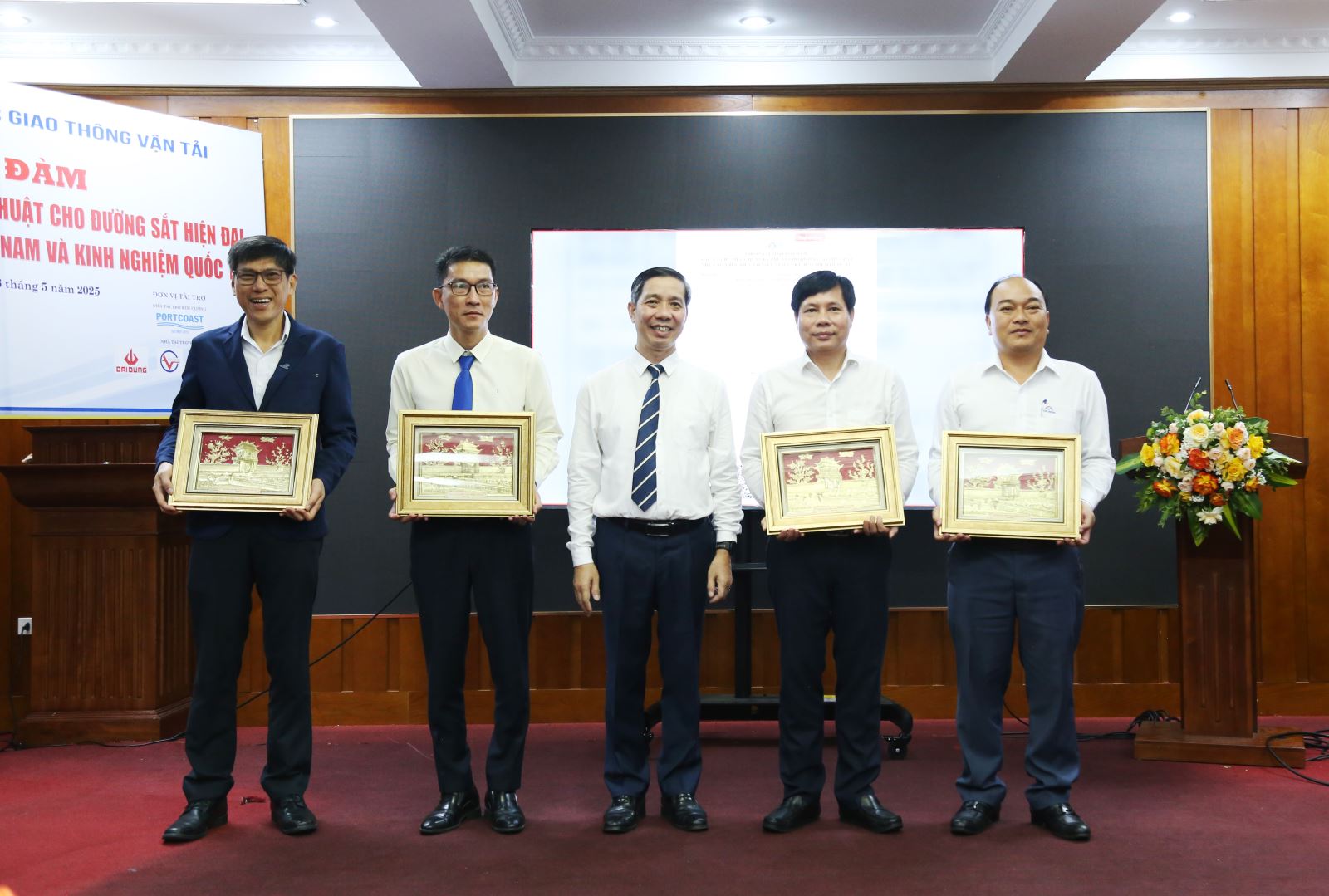
Assoc. Prof. Dr. Nguyen Thanh Chuong – Party Committee Secretary and Chairman of the University Council – presented souvenirs to the partners who signed strategic cooperation agreements with the university.
During the discussion session, participants had the opportunity to listen to and engage with leading domestic and international experts who have been directly involved in the planning, operation, and development of modern railway systems both in Vietnam and abroad. The topics presented included:
- A presentation on the Decree guiding FEED (Front-End Engineering Design) by MSc. Bui Van Duong – Deputy Director General of the Department of Construction Economics and Investment Management, Ministry of Construction;
- A talk on digital transformation experiences in the railway sector by Mr. Tran Tan Phuc – Chairman of the Board of Directors, PortCoast;
- An introduction to the structure, formation, and practical application of railway standards in Europe by Dr. Tran Khanh Le – Expert from SNCF (France);
- A presentation on the practical need for developing a unified standard framework for urban railways by Dr. Phan Huu Duy Quoc – Chairman of the Board of Directors, Construction Corporation No. 1;
- An overview of the railway safety monitoring system in Taiwan by Dr. Wang Rou-Zen – Expert from the National Research Institute of Taiwan – China.

MSc. Bui Van Duong – Deputy Director General of the Department of Construction Economics and Investment Management, Ministry of Construction – delivered a presentation on the Decree guiding Front-End Engineering Design (FEED)
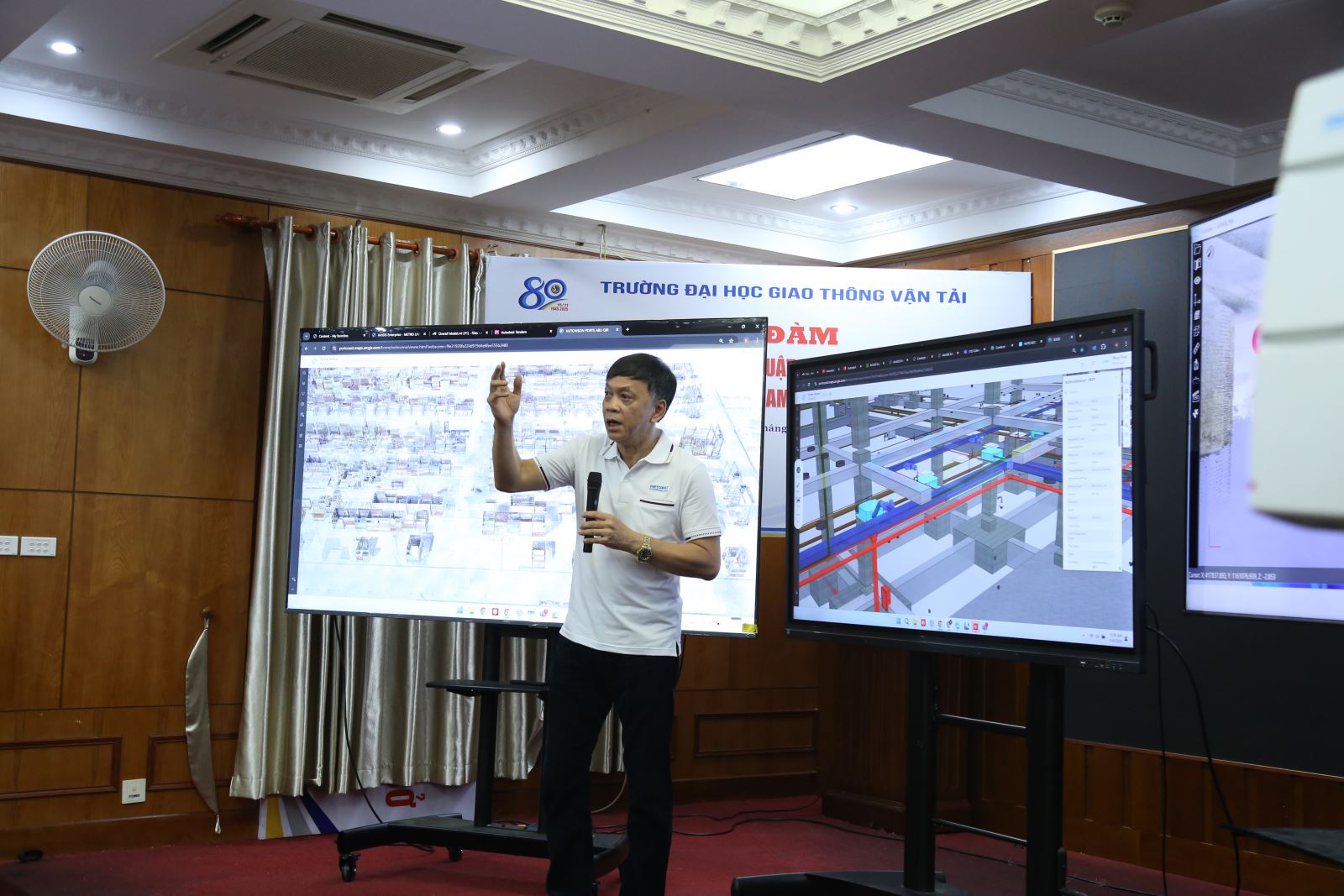
Mr. Tran Tan Phuc – Chairman of the Board of Directors of PortCoast – shared his experience in digital transformation within the railway sector.
The scientific seminar was a valuable opportunity for the scientific community, regulatory agencies, and businesses to come together to share insights, discuss, and review technical issues encountered during the construction of urban railway lines in Hanoi and Ho Chi Minh City. It also served as a platform to draw important lessons for developing a standardized system that is both suitable for Vietnam’s specific conditions and aligned with international trends.
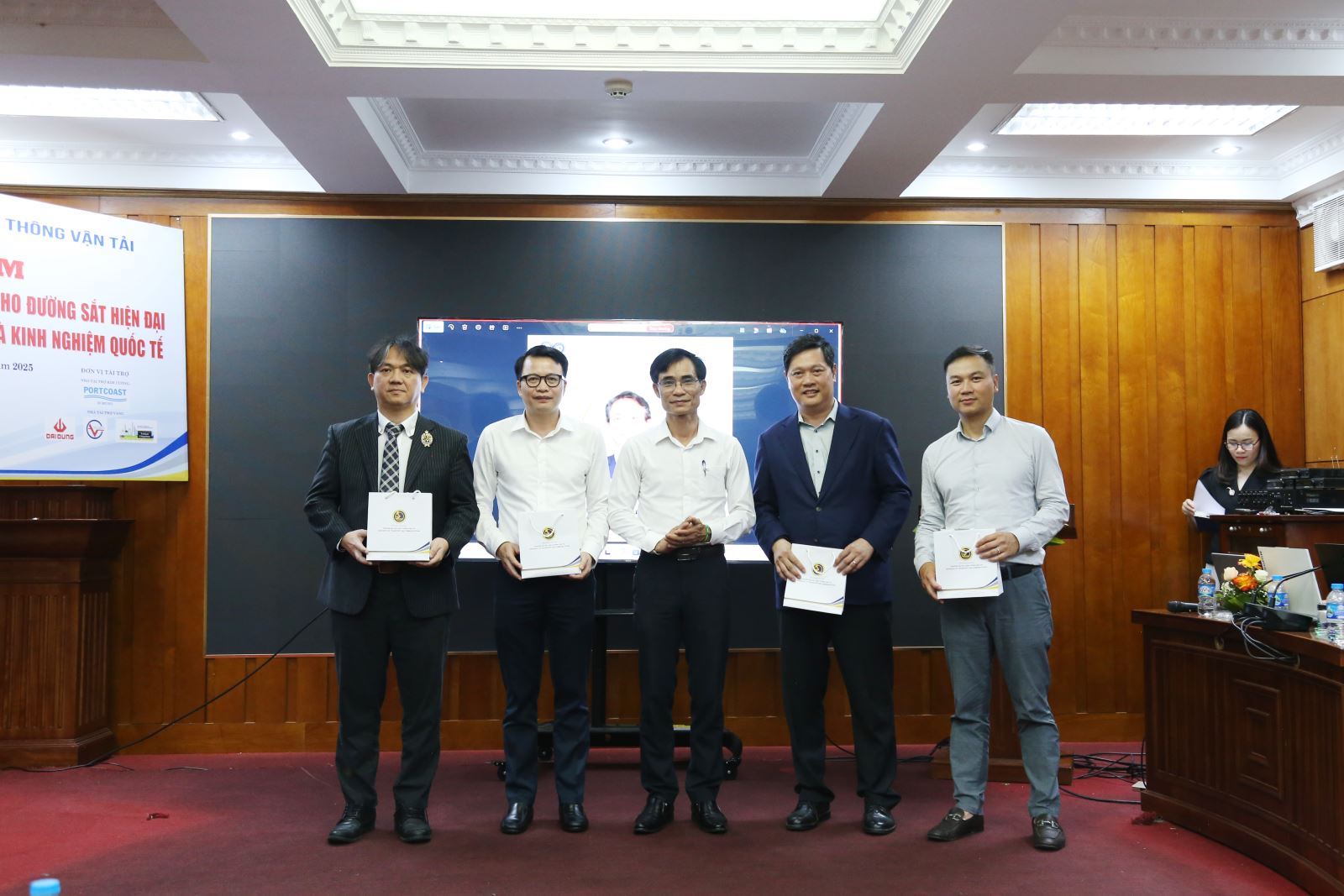
Assoc. Prof. Dr. Le Hoai Duc – Vice President of the university – presented souvenirs to the guest speakers of the seminar.
ICDS
